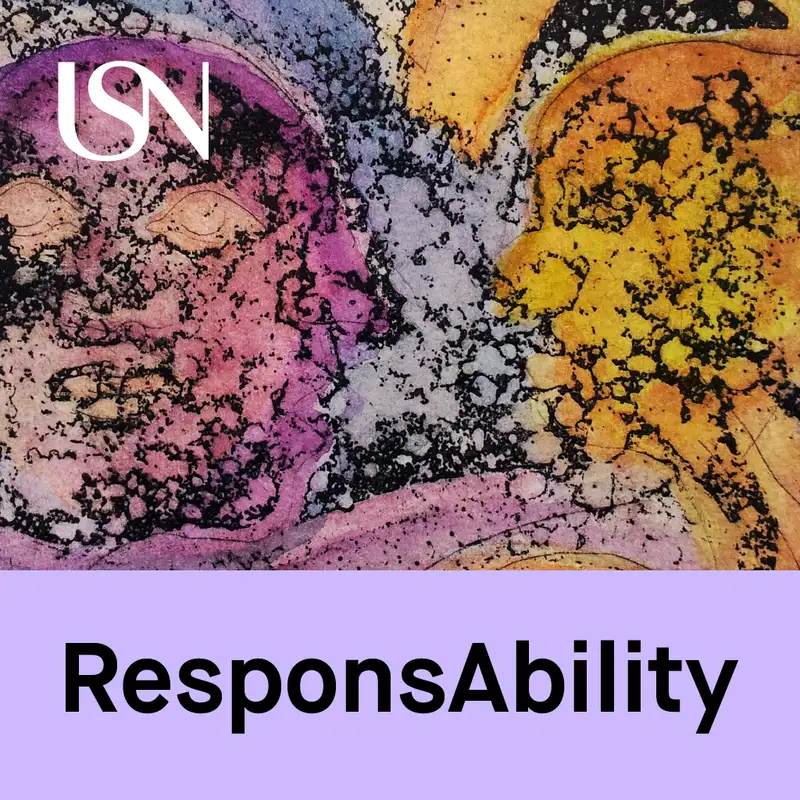#17 Ambrogio Bongiovanni | Interfaith Dialogue
TRANSCRIPT SUMMARY
(This transcript summary was AI-generated and then edited by the podcast hosts for quality assurance)
#17 Ambrogio Bongiovanni | Interfaith Dialogue
- a podcast dialogue with Michael Noah Weiss and Guro Hansen Helskog
INTRODUCTION
In this episode of the ResponsAbility Podcast, hosts Michael Noah Weiss and Guro Hansen Helskog speak with Professor Ambrogio Bongiovanni, a full professor at the Pontifical Gregorian University, director of its Center for Interreligious Studies, and consultor for the Vatican’s Dicastery for Interreligious Dialogue. Bongiovanni shares insights from his decades-long work on interreligious dialogue, peace-building, and the pedagogy of dialogue, reflecting on how education can respond to existential, cultural, and spiritual challenges.
FROM SCIENCE TO INTERRELIGIOUS DIALOGUE
Bongiovanni’s academic path began in chemical engineering, but his interest in religious studies grew alongside his scientific training. Early grassroot experiences in interfaith settings led him to spend time in India, where he encountered Hinduism, Islam, and the country’s rich pluralistic traditions. This exposure deepened his understanding of “otherness” and inspired him to pursue formal theological studies, culminating in a PhD focused on interreligious education.
His time as a visiting researcher at Jawaharlal Nehru University in India was formative. There, he explored how India’s religious and cultural traditions contributed to the development of modern science—a study that further strengthened his conviction that dialogue across worldviews enriches both knowledge and humanity.
THE PEDAGOGY OF DIALOGUE
A key concept in Bongiovanni’s work is the “pedagogy of dialogue.” For him, dialogue is not a casual conversation or mere debate—it is a disciplined and complex practice that demands openness to otherness. Drawing on Raimon Panikkar, he distinguishes between dialectical dialogue (focused on argument and categories) and dialogical dialogue (focused on mutual transformation and crossing of categories).
Bongiovanni emphasizes the need for educators to critically examine their own conceptual frameworks while engaging with other traditions. Dialogue, he insists, is not about diluting differences but about meeting and clarifying them. For over 15 years, he has taught courses on the pedagogy of interreligious dialogue, which encourage students to revisit inherited assumptions and cultivate genuine intercultural understanding.
DIALOGUE FOR NONVIOLENCE AND PEACE
As director of the Center for Interreligious Studies, Bongiovanni has developed programs focusing on nonviolence and theology of peace. He highlights how religious traditions, often seen as sources of conflict, can also serve as powerful resources for peacebuilding.
In these courses, students study how concepts like ahimsa (nonviolence) are interpreted in Christianity, Islam, and other faiths. For example, a Muslim colleague at the Gregorian University has developed an Islamic theology of nonviolence, enriching the interfaith conversation. Bongiovanni believes that peace is not just a right but a universal gift that must be cultivated collectively.
CHALLENGES OF INTERRELIGIOUS DIALOGUE
Promoting dialogue is not without challenges. Within religious communities, dialogue is sometimes misunderstood as a mere tool or as a threat to doctrinal purity. Bongiovanni counters this by stressing that dialogue is a “way of being”—rooted in relationships, as thinkers like Martin Buber have argued.
He also warns against reducing dialogue to political correctness or superficial encounters. True dialogue, he insists, involves existential commitment and a willingness to face deep differences without resorting to relativism. Despite rising nationalism and religious fundamentalism, Bongiovanni remains hopeful, pointing to the many positive developments in interfaith collaboration worldwide.
INSTITUTIONAL AND GLOBAL RESPONSIBILITY
Bongiovanni’s career has spanned local grassroots initiatives and global institutions. His early work with the United Nations exposed him to the realities of globalization and its ethical challenges. At the Gregorian University and within the Vatican’s interreligious structures, he has witnessed the Catholic Church’s growing openness toward dialogue and concrete initiatives for peace.
These institutions, he argues, must embrace a “third mission” beyond teaching and research: engaging with civil society, governments, and NGOs to promote the common good. With students and faculty from over 120 countries, the Gregorian University serves as a microcosm of this global dialogue.
ETHICS, BILDUNG, AND SPIRITUALITY IN EDUCATION
Bongiovanni sees a significant gap in education systems worldwide, particularly in how they address moral and spiritual formation. Education, he argues, must move beyond technical skills and market-driven goals to focus on being rather than just doing. It should bring out students’ inner resources and foster their ability to relate ethically to others, the environment, and the transcendent.
For Bongiovanni, spirituality is not limited to religion but refers to a sense of inner anchoring and openness to transcendence—a universal human category. He warns that modern secularism often sidelines this dimension, leading to fragmentation and a loss of meaning.
BUILDING PEACEFUL AND REFLECTIVE COMMUNITIES
As president of the Marcus Foundation, Bongiovanni supports educational projects around the world that emphasize peace, dialogue, and global citizenship. He advocates for interreligious and intercultural education as essential tools for building sustainable societies.
He stresses that Bildung—the holistic formation of persons—requires processes rather than products. True education cultivates ethical awareness, relationality, and spiritual depth, preparing individuals not only for professional life but for responsible participation in the shared world.
CONCLUSION
This dialogue between Michael Noah Weiss, Guro Hansen Helskog and Ambrogio Bongiovanni highlights how interreligious dialogue, peace education, and spirituality can converge to address contemporary crises. His vision of education calls for openness to otherness, commitment to dialogue, and a focus on both inner and outer transformation. In a world marked by fragmentation, his work reminds us that building bridges between cultures and faiths is not only possible but essential for a future grounded in peace, respect, and shared responsibility.
